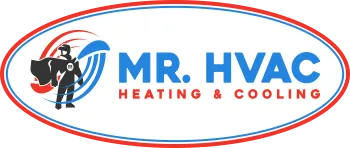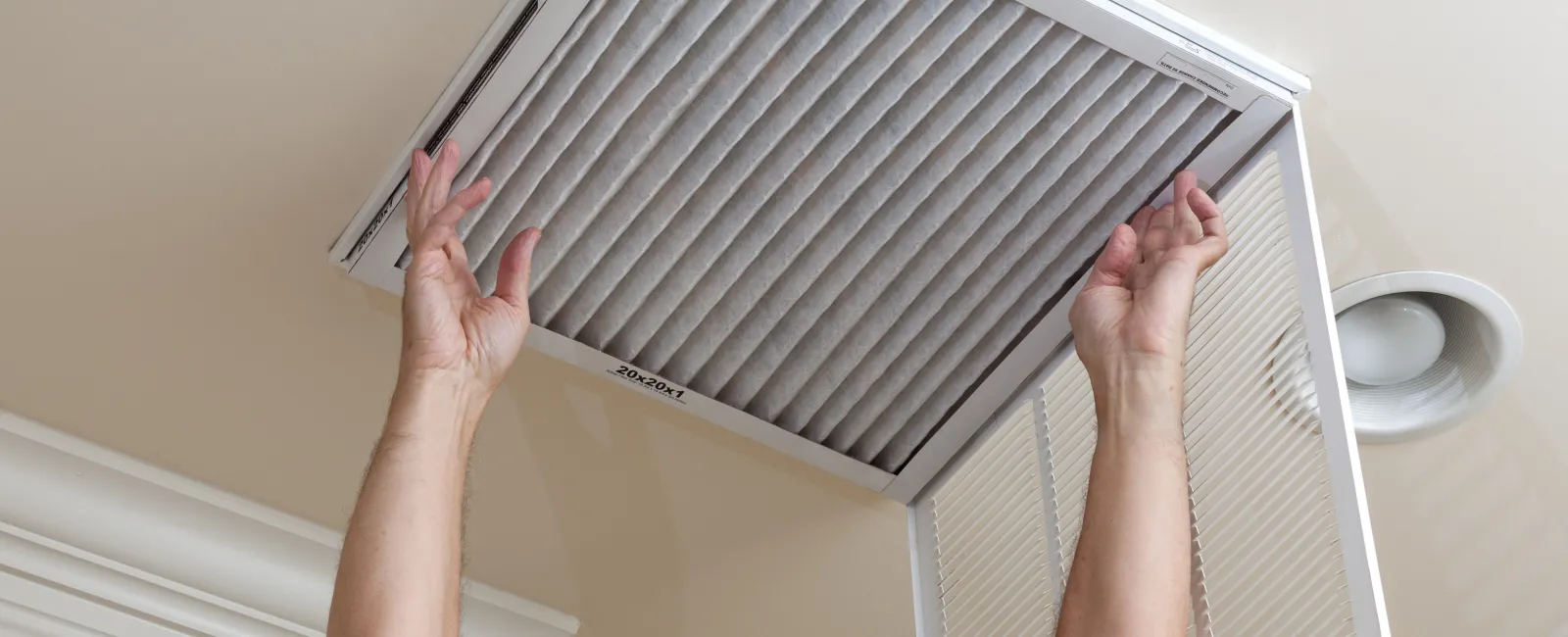March 14, 2025
A dirty HVAC filter can reduce airflow, strain your system, and increase energy costs. It can cause weak cooling, overheating, poor indoor air quality, and even system failure. Replacing or cleaning your filter regularly improves efficiency, prevents costly repairs, and keeps your home comfortable.
How a Dirty HVAC Filter Affects Your Home
A dirty AC filter prevents proper airflow through your HVAC system. This seemingly small issue can trigger a chain reaction of problems that impact both your comfort and your wallet.
Reduced Airflow and Inefficiency
One of the first symptoms of a dirty AC filter you may notice is weak airflow. When the filter is clogged, your HVAC system struggles to pull air through, making it work harder to maintain your desired temperature. This inefficiency results in higher energy bills due to increased power consumption. It also causes inconsistent temperatures throughout your home, making it difficult to maintain a comfortable environment. Additionally, the system runs for longer periods, which accelerates wear and tear on its components.
Increased Strain on Your HVAC System
A dirty HVAC filter forces your heating and cooling system to operate under stress. Over time, this can lead to serious mechanical failures.
A clogged air filter can cause overheating in furnaces, which may lead to system shutdowns. It can also result in frozen evaporator coils in AC units, reducing their cooling capacity. Additionally, restricted airflow puts strain on the blower motor, increasing the risk of burnout and costly replacements.
Poor Indoor Air Quality
One of the major effects of a dirty air filter in a house is compromised air quality. Your HVAC filter is designed to trap dust, pet dander, pollen, and other airborne contaminants. A clogged filter no longer effectively captures these pollutants, allowing them to circulate in your home.
This can lead to increased allergy and asthma symptoms, making it harder to breathe comfortably indoors. It can also cause dust buildup on furniture and surfaces, creating a constantly dusty environment. Additionally, trapped moisture can result in musty odors and mold growth within the ductwork, further compromising indoor air quality.
Does Cleaning Your AC Filter Make It Colder?
Yes! If your AC isn't cooling effectively, a dirty AC filter might be the reason why. A clogged filter restricts airflow, making it difficult for your system to distribute cold air properly. Cleaning or replacing your filter improves airflow, allowing your air conditioner to function efficiently and cool your home more effectively.
Signs That You Have a Dirty Air Filter
Recognizing the symptoms of a dirty AC filter early can save you from unnecessary repairs and discomfort. Here are some key indicators that your filter needs attention:
Weak or uneven airflow throughout your home.
Unexplained increase in energy bills due to overworked HVAC components.
Excess dust buildup on surfaces and vents.
AC system running longer than usual or shutting down unexpectedly.
Furnace overheating or failing to maintain warmth.
Unpleasant odors coming from your vents.
If you notice any of these symptoms, it's time to check your filter and replace it if necessary.
Can a Dirty Filter Affect Heat?
Yes, a dirty filter can impact not just your cooling system but also your heating system. When airflow is restricted, your furnace has to work harder to push warm air through the ducts. This can result in overheating, which may trigger safety shut-offs in the furnace to prevent damage. It can also cause cold spots in different areas of the home, as restricted airflow makes it difficult for warm air to circulate evenly. Additionally, the increased strain on the blower motor can lead to premature failure, requiring costly repairs or replacements.
To ensure your heating system operates efficiently, regularly checking and replacing your HVAC filter is essential.
How Often Should You Change Your HVAC Filter?
To prevent the negative effects of a dirty air filter in a house, follow these general filter replacement guidelines:
Every 1-2 months for homes with pets or allergy sufferers.
Every 3 months for standard household use.
Monthly if you have high dust levels or live in an area with poor air quality.
If you use a reusable filter, cleaning it every few weeks can help maintain optimal airflow and efficiency.
The Long-Term Impact of Ignoring a Dirty HVAC Filter
If left unchecked, a dirty air filter in your house can lead to:
Higher utility costs due to inefficiency.
Increased wear and tear on your HVAC system.
Potential system failure, requiring expensive repairs or replacements.
Health issues from prolonged exposure to airborne contaminants.
Replacing or cleaning your filter is one of the easiest and most cost-effective ways to maintain your HVAC system and improve indoor air quality.
Final Thoughts
A dirty HVAC filter can reduce airflow, strain your system, and compromise both cooling and heating efficiency.
However, preventing these issues is simple. By regularly checking, cleaning, or replacing your filter, you can ensure your HVAC system runs smoothly, keeping your home comfortable year-round. If you're experiencing persistent HVAC issues despite changing your filter, it may be time to call a professional at MR. HVAC for further inspection. If you're experiencing issues, contact MR. HVAC today for expert service and reliable solutions!




